

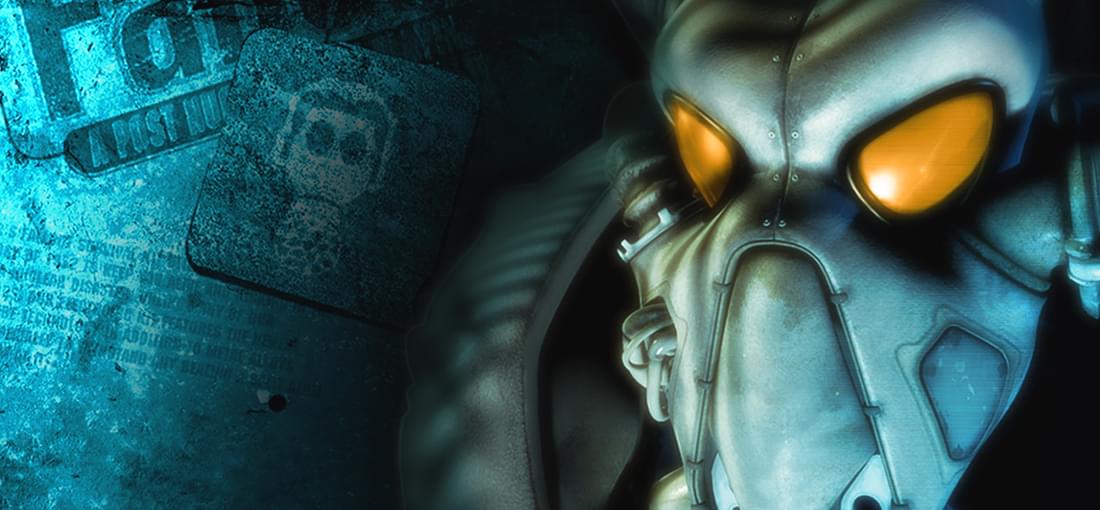
Name almost anything from the Fallout 1, and Fallout 2 has done it better. Weapons and other equipment? Expanded upon. Settlements and sidequests? Far more of both, settlements themselves are larger and more expansive, there are more well-written NPCs to talk to, and is far more interconnected throughout the entire game world. While this gives the game more of a frontier-type atmosphere than a true apocalypse like Fallout 1 (or later 3) would provide, it would be foolish to dismiss it on those grounds, as its still just as immersive as both of those games. Companions? Great personalities for all of them, and you now have a very in-depth means of controlling their combat behavior, their weapons, AND armor this time, meaning they won't become useless the second you encounter enemies with heavy weapons. Music? Just look up "All-Clear Signal" for an example of the treat your ears are in for. RPG elements? Perks are more balanced and the level cap is thankfully completely gone. As great as the game is, it has a few problems, though most are nitpicks. First, the AI. It's improved, but not nearly as much as it should have. NPCs still block your way in narrow hallways or doors at times, people will still moronically fire machine gun bursts right into the backs of their allies at point-blank range. If you have five companions with you, they can and frequently will kill each other with poorly-aimed burst shots. Second, go in with the expectation that the beginning of the game is going to be a grind, as the tutorial level is needlessly long and tedious. But I promise, slog through first four or so hours with stride, and you're in for a top tier RPG experience.
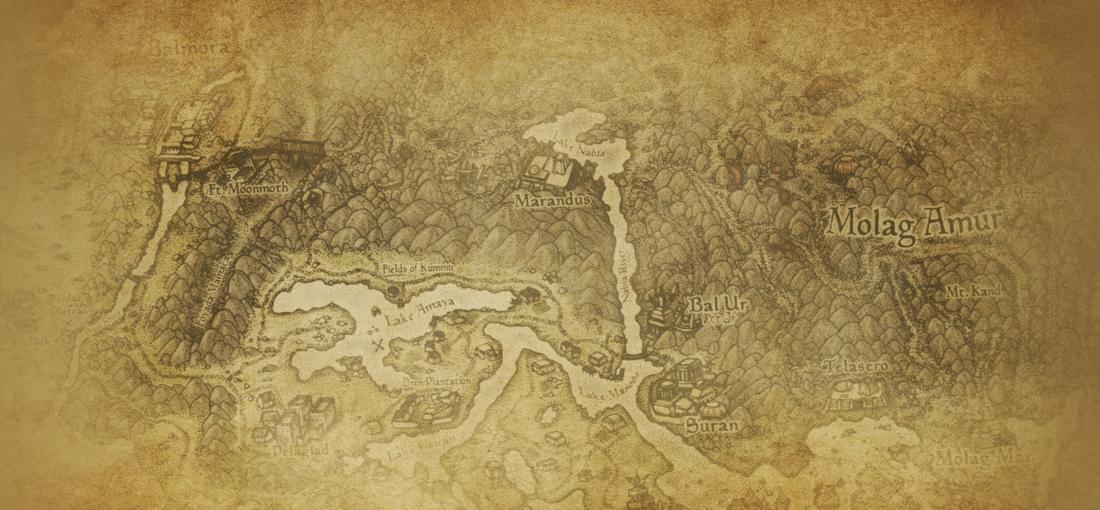
It's a shame I don't like this more than I do. The main story is by far the best of any Bethesda-developed title and has tons of interesting quests and characters to meet in its duration. Playing this game as a female character resulted in probably one of the funniest and most unexpected ways of completing an otherwise difficult quest that I've ever seen in a game. In addition, despite its aged graphics, the game's environments and level designs are still incredibly immersive. You can spend easily hours just exploring the landscape from swamps to forests to the dusty wastelands in northern Vardenfell. The architectural design also deserves special mention. Where later ES titles had much more familiar, European-style designs to their settlements and buildings, Morrowind's structures are far more creative and alien looking than anything you'd seen in Skyrim or Oblivion. Where the game falls flat is unfortunately in every other area. Combat is a drab bore with awful controls and a bizarre hit-detection making it far worse. While the magic system is quite varied and expansive, its limited range of animations and visible feedback result in most spells feeling exactly the same their usage. But mediocre gameplay can be overlooked as long as the story and characters are good right? Well, yes and no. Again, the MAIN quest is good, but almost every other quest isn't because virtually non of the NPCs that aren't at least tangentially related to the main story have no personality. This is because rather than having unique dialogue, most NPCs have recycled dialogue that is repeated word-for-word regardless of location, race, or class. Thus, doing sidequests and talking to NPCs, something that is a staple of RPGs, becomes completely pointless, severely impacting your immersion in a gameworld that is dependent on immersion to work. The game isn't bad by any means (I still put around 90 hrs into it). But don't go in with sky-high expectations, or you will be disappointed.
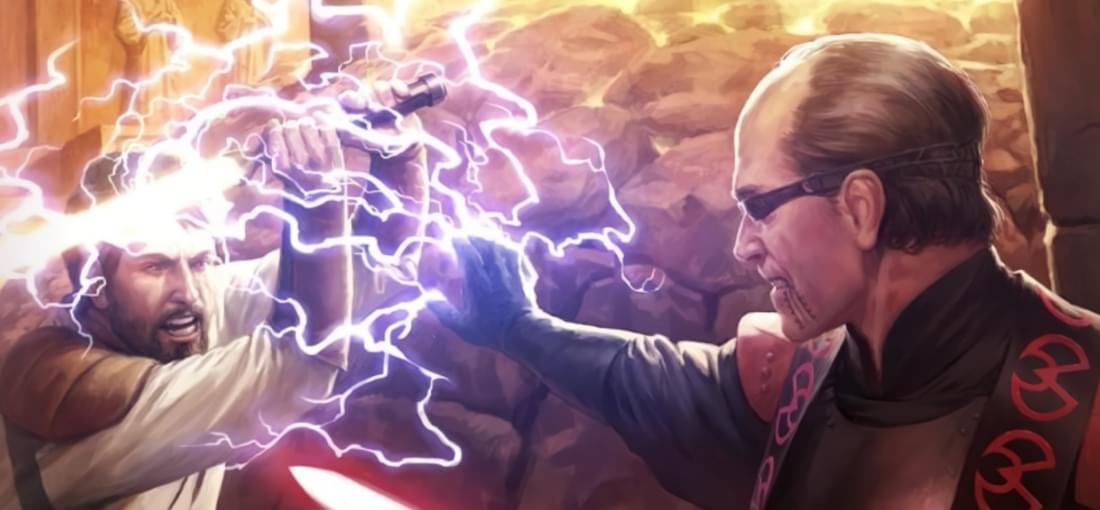
The original Dark Forces was a decent, fun game, but this one is a tragic step backward. I really wanted to like this game, but two things just make it a chore to play. First are the controls, which just feel wonky compared to Dark Forces; aiming is way less accurate and the auto-aim feature barely helps. Controls, though, those can be gotten used to. No, the real problem is this game is just not well optimized for Windows 8. It looks like shit on even high resolutions, and even blacks out the pause screen if it is set too high. Even worse, it crashes frequently (sometimes after a mere half-hour of gameplay or less) and the timing seems completely arbitrary. Sometimes it will run fine for an entire level, but then crash the moment you try to bring the pause screen up or even right after cutscenes. As the gameplay and level design, aside from the control issues, are for the most part good (it also finally has the ability to manually save during levels, the lack of which was a huge problem with the original Dark Forces) it's a decent game WHEN it works, so let the buyer beware.
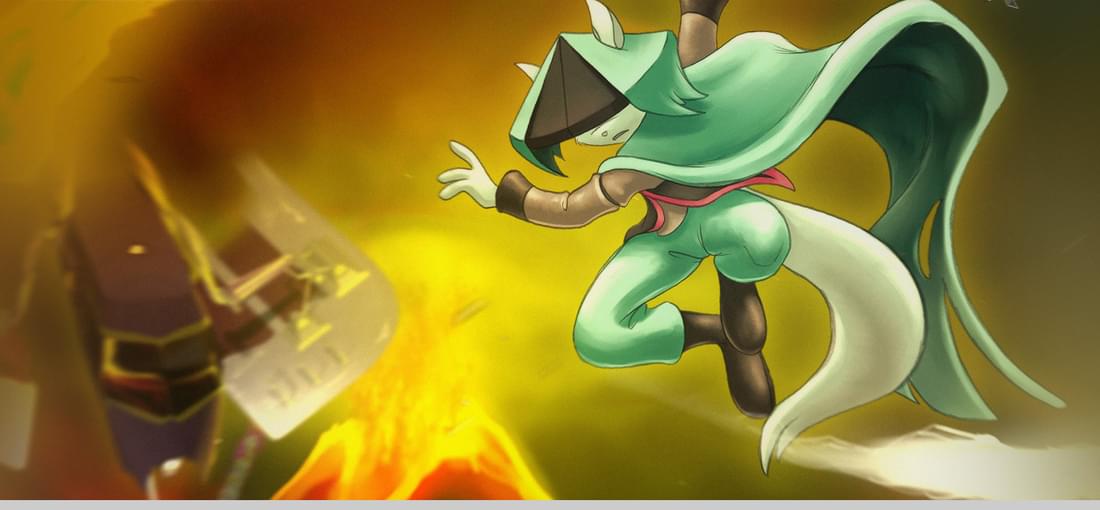
For those that love Metroidvania platformers, this is a no brainer. While the story is decent, if not particularly memorable, and the characters are likeable enough to keep your interest, the gameplay is where this title really shines. It's top-tier 2D side-scrolling action with its combination of melee combat and magical attacks, as well as having lots of enemy variety and varied locations. It also carries very satisfying visual impact, as the animations and graphics are spectacular with their bright colors and gorgeous backdrops. Add on very tight, responsive controls, and combat is an all-around blast to play. Outside of combat, there are powers that you can unlock over the course of the story by exploring certain areas. In the vein of Metroidvania, these not only help out in the combat or platforming, but allow the player to access areas of the map they couldn't otherwise to uncover hidden loot caches or additional challenge areas. Overall, you're looking at about 12-15 hours of gameplay for a single playthrough. Now the negatives. While overall the voice work is pretty damn good, Fidget is hit-and-miss. Her voice can be annoying at times, but at least she makes up for it by having charming and funny dialogue. In terms of gameplay, the RPG elements are rather weak, and only really impact combat. There's no significant dialogue system either, so your interactions with NPCs are brief and they really only serve to give you quests. Beyond that, the main quest is linear as hell, and the player's ability to impact it in any way is negligible. It's understandable given its an indie title, but it's still disappointing. There's a crafting system too, and while its extensive, most of the time it's rather useless, as you easily loot items better than the ones you can craft, and as you have to pay money to craft things, making stuff with the intent to sell them is counterproductive. However, these negatives aren't deal breakers, and the game is still great overall.
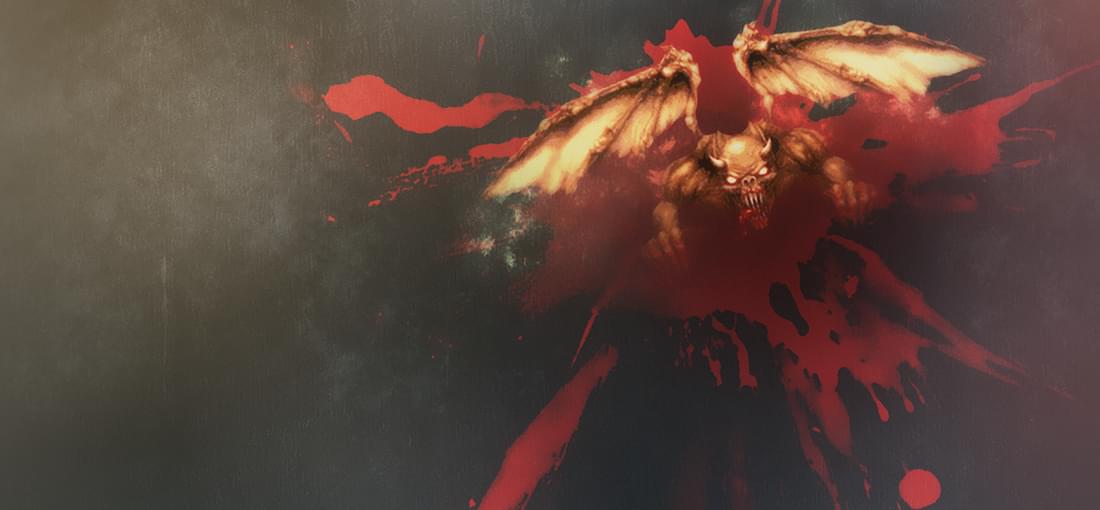
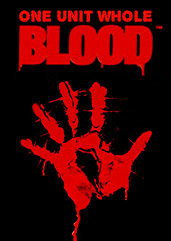
Duke Nukem raised the bar for old-school shooters; Blood sets the pinnacle. Between this and the original Half-Life, it would be a very hard choice for my favorite when it comes to 90's FPSs. If any game deserves a faithful remake that retains everything it did well combined with better graphics, improved AI, and the ability to aim vertically without needing auto-aim (my only true complaints with the game), this is it. For a FPS, it's nearly as perfect as a game can get. It's challenging, but in all the right ways. There are some puzzles, but they aren't tedious or obtuse. The enemy variety is spectacular, ranging from zombies to mad cultists with shotguns to fire-breathing dogs to flying gargoyles that shoot electricity from their eyes. As for the player's arsenal, I'm not going to mince words: it's the best in any shooter, bar none. In most shooters, some weapons will quickly become obsolete after a few levels. Not here. Every single one of your ten weapons can be useful depending on the circumstance, and each has great atheistic design with tons of satisfying impact. You haven't known fun until you've blasted a cultist across the room with a double-barreled shotgun, lit zombies on fire with flares, and electrocuted an entire roomful of enemies to death with a well-placed blast from a Tesla Cannon. While there isn't much of a story (you've been betrayed by a dark god; rise from the dead and seek bloody vengeance pretty much sums it up), the level design more than makes up for it. It's dripping with atmosphere, secret areas, and tons of horror references that fit right into Blood's gory, sadistic, and yet oddly humorous world. Through the game you'll be battling in haunted mansions, train stations, carnivals, temples, and caverns among many other diverse locations, and all of them mesh perfectly together. The cherry on top is the game's soundtrack, filled with haunting, eerie gems that breathe even more life into this amazing experience.
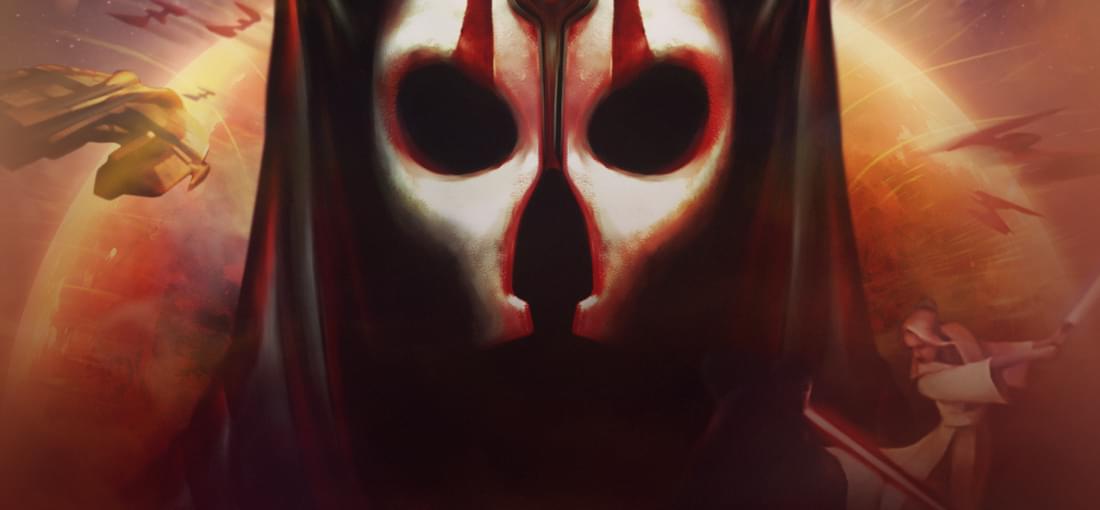
The first KOTOR is an amazing game that still holds up in pretty much every area to this day. As for the sequel...that's a more difficult question. Gameplay-wise, the sequel is superior. The turn-based combat is still as good as it was in the first, but refined with new Force abilities, a higher level-cap, and a good crafting system that your each of your character's skills can affect. The story is much different than the original's too, and is much darker and oppressing, really feeling like the aftermath of a massive, destructive war. It covers deep themes and questions about the Jedi, the Sith, and the nature of the Force. You will also visit a few old locations from the previous game, and like a good sequel, these locations are similar enough to evoke your memories of it from the last game without feeling like a rehash. But, as other reviewers have pointed out, the game feels unfinished. There are fewer overall locations to visit, the game is shorter than the original, and is heavily scripted at certain parts. This is more subjective of a criticism, but I didn't find your companions as interesting as those in the first game (save a few), and this is mainly because your interactions with them are much more limited, with much less dialogue and conversations you can have with them. And not to spoil to much, but the ending sucks, coming out of nowhere and leaving you with dozens of unanswered questions. If you loved the first KOTOR, you'll probably like this one too; just don't expect it to be better.
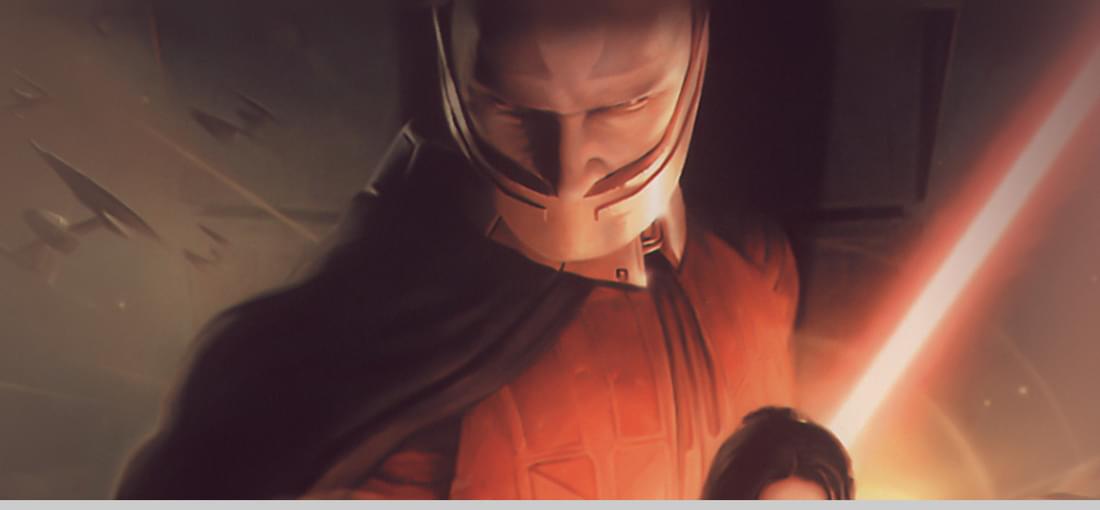
This is not just the best Star Wars game ever made. It's one of THE best games ever made. I don't doubt that almost every game on this website is given that praise by someone, but KOTOR actually DESERVES such an accolade. The story is utter brilliance, with possibly one of the greatest twists in video game history. Tons of stories like KOTOR's boil down to you saving the country/world/galaxy, but KOTOR is so good in its pacing and delivery that each step of the way towards that massive goal feels important and interesting, and by the time the epic finale arrives, the weight of the task given you carries the gravity and tension it warrants. Even the Light/Dark Side nature of the game's morality system actually has plenty of nuance in areas, with some quests that actually left me feeling morally conflicted, something very rare in games. On that note, the NPCs are similarly great. All of the eventual companions you meet in the course of your adventures have tons of personality, back story, and nuance. You grow to know and love each one of these characters as well as you would in any well-written novel. Even minor NPCs have great personalities of their own, and you can easily spend hours just listening to the individual quirks and stories that each one carries. And the quests are flat out cool. Who doesn't love to infiltrate secret assassination guilds or save Wookies from slavery? When I first sat down to play, I was worried it might be like other old cRPGs I've played: ones with good writing, but with gameplay that hasn't aged well at all. KOTOR, however, has gameplay as good as its writing. The best way I can describe its gameplay is it feels like what Planescape Torment tried to do, with a semi-turn-based/real-time combat and movement style, but ironed out all the flaws and annoyances. I quickly fell in love with this combat system, which is saying a lot, as I normally prefer FPSs and character-action games. BUY THIS GAME!!!
With SoT and WW being some of my favorite games of all time, perhaps my expectations were too high for Two Thrones. That said, I still find it lacking in many areas. First, let's state the good things: the parkour is as inventive and satisfying as ever and the story--though I heartily dislike the beginning--has a great climax and is a satisfying end to the Sands Trilogy. Also, the dialogue and conflict between the Prince and his dark alter-ego is well-written and is probably my favorite part of the story. The biggest problem is that the gameplay--refined to near perfection in WW--has been dumbed down for some utterly baffling reason. The attacks are no longer as accurate or well animated, making it much harder to string together the satisfying acrobatic/weapon combos that made WW so much fun. Worse, the Prince is much weaker than in previous games and often dependent on dry, QTE stealth kills to stand a chance against his enemies. The boss battles are also not nearly as satisfying or fun as though in WW, most using QTE's in the place of actually gameplay to finish off bosses. It does have a slight redeeming factor with the Dark Prince, who does play differently than the regular Prince, and carving your way through a horde of enemies with your chain-whip does carry a charm to it. This might be a nitpick, but I also was annoyed by the fact your primary weapon is the Dagger of Time through essentially the entire game. Remember how satisfying it was in previous titles to pick up a new, more powerful sword and test it out? No such variety here, and that staleness is only made worse because the Dagger is clearly inferior to other swords the Prince has used in the other titles. I can't say TT's combat is bad, it certainly stands above that of other lesser 3rd-person action games, but I don't understand how it could be worse when the previous game in this series was a textbook example of how to do it perfectly!
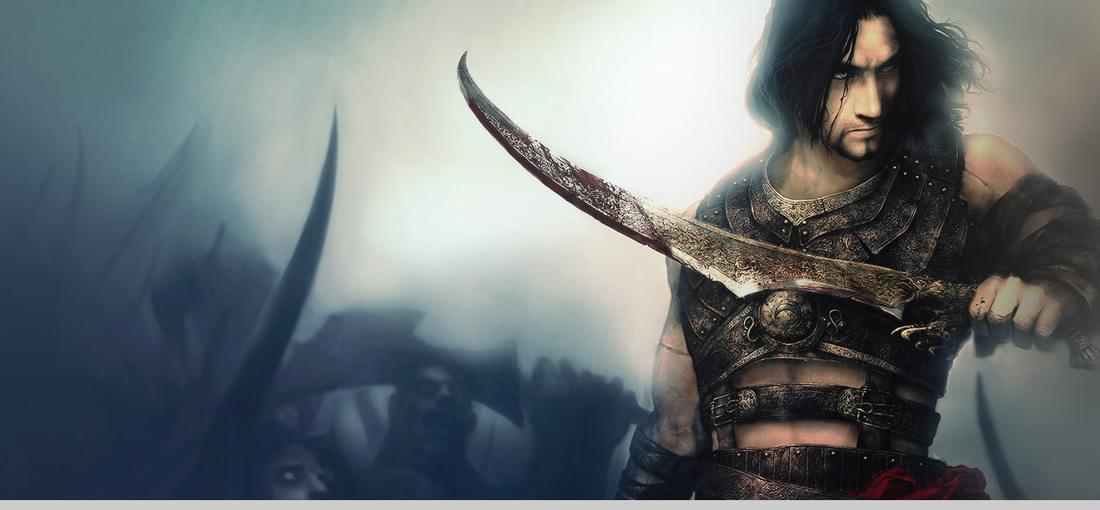
It's not easy to follow up a near-perfect game like the SoT, but WW holds up spectacularly well even with such a high bar set. First, the bad: the blood and gore is unnecessary (I mean come on; SAND monsters have blood?) and worst of all, the depiction of female characters. This has been touched on a lot, for good reason. It is just so distracting and tasteless that it makes an otherwise interesting character like Kalianna much harder to take seriously. If not for this fan-service, I might be tempted to say WW is BETTER than SoT. Despite these flaws, I still think WW is fantastic as it upgrades the most important part of SoT: the gameplay, specifically the combat. The combat was fun in SoT, but in WW it is nothing short of jaw-dropping. It is much more intense, visually satisfying, and deep than even the best fights in SoT. Most combat systems get repetitive after a while, but not this. It never gets old to body-vault over an enemy and slice them in two, rappel off a nearby wall and impale a different guy, then perform a special combo and slice your way through a horde of sand monsters that's surrounded you. Intense boss fights are also a welcome addition. In SoT there were a few boss fights, but they were mainly push overs. Not here. On hard difficulty many of these bosses can easily knock of 3/4 of your life if you aren't careful, but all of them feel fair and a worthy challenge. Even the platforming gets a minor upgrade with a couple new tricks, though its still by-and-large identical to SoT, but that's in no way a bad thing. I'm a little split on the story though. I did like the darker storyline, and IMO it has some pretty good dramatic moments throughout. The Island of Time is a perfect setting for the story as well: morbid, dangerous, huge; yet stunningly beautiful at the same time. What I miss is the conversations and dialogue that SoT had between Farah and the Prince. Having similar conversations in WW would have added much stronger characterization.
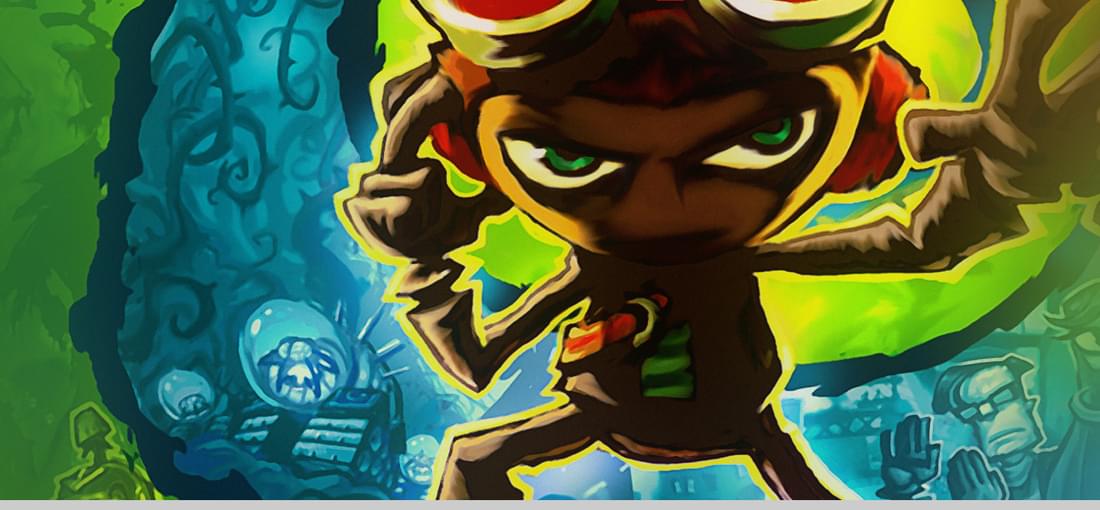
Out of all the games I've played, this one might be the hardest to categorize, just because of how many genres it manages to seamlessly combine. It's part comedy, part platformer, part action-adventure, and part puzzle game, and yet surprisingly, all of them are well-executed and make for a very fun experience. Probably the strongest portion IS it's humor. Combined with great characters and the quirky setting of a psychic summer camp and conspiracies of world domination, its story will have you grinning the whole way through. For the most part, the rest of the gameplay is very good as well. The puzzles are creative and get you thinking, but aren't vague or obtuse, so you won't have to shut off the game every five minutes to check out a walkthrough like some point-and-click games. The platforming is also fun, and is at its best when you explore the different levels by combining Raz's psychic abilities with his acrobatic ones. The game isn't flawless though. During these platforming sections the camera can occasionally get in your way, something that ranges from mildly annoying to hair-tearingly frustrating (including one VERY aggravating portion towards the end that you will fail time and time again at just fighting the camera). But the main problem for me is that the game is extremely cut-scene heavy, many of which are unskipable. I get that the game is story-driven , but I still feel like most of these cut scenes could have been presented as scripted events, and it gets annoying (on one stage in particular) when the control is yanked from you every five minutes or less for yet another cut scene. Also, most of the boss fights are disappointingly easy, but now I'm just nitpicking. Overall, regardless of these flaws, I still highly recommend this to any gamer looking for a good platformer or comedy game. On a side note, I would have given it 4.5 stars if I could, but the problems are significant enough to prevent me from giving it the full 5.